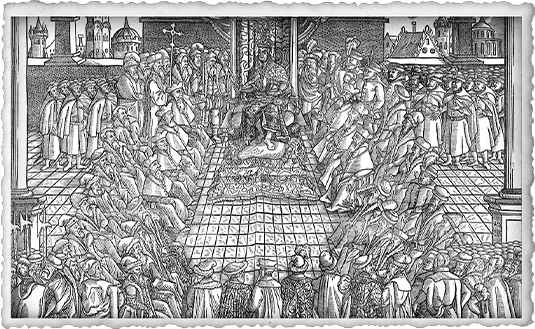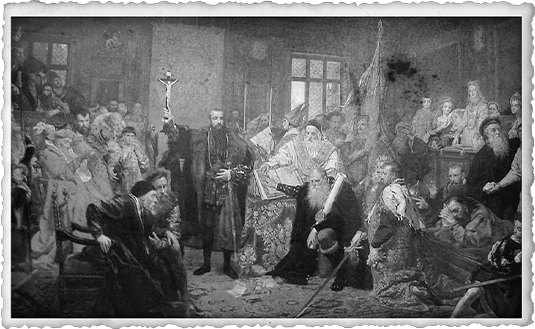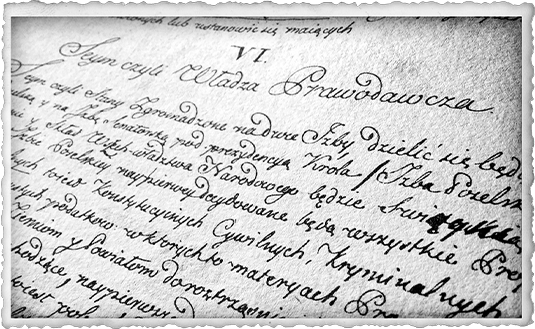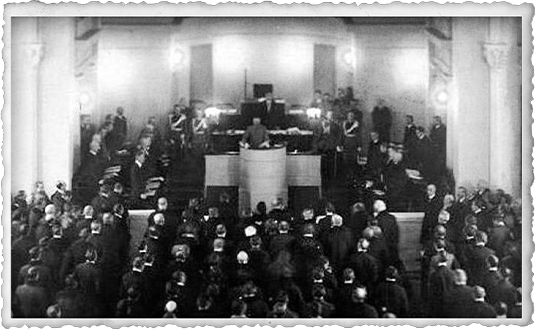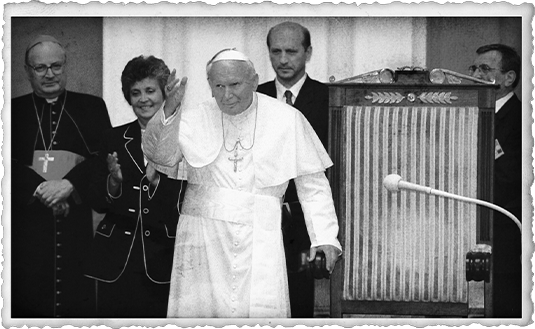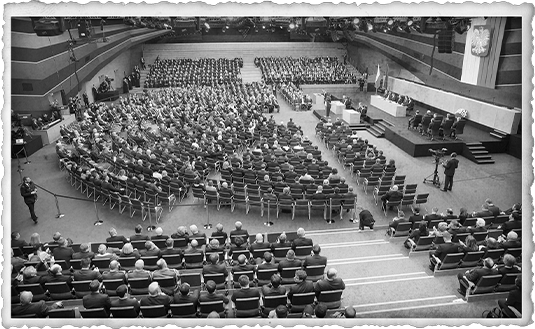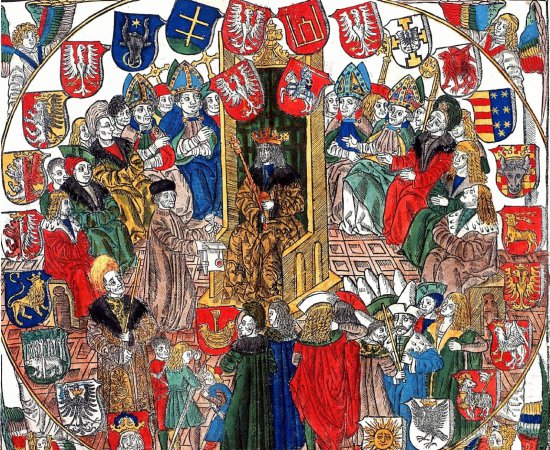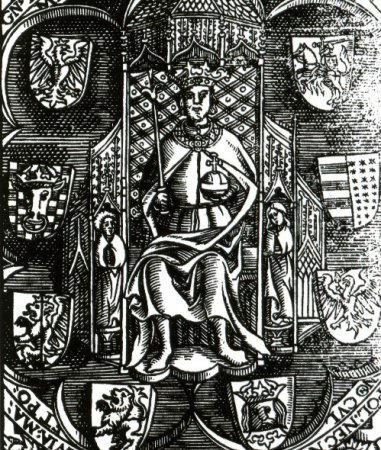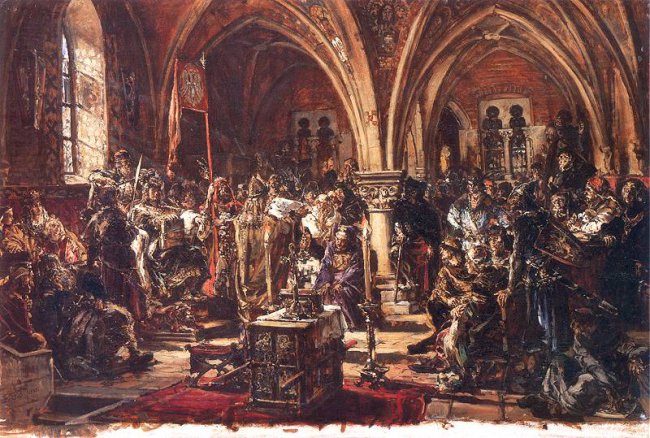The 1468 Sejm in Piotrków. The earliest "bicameral" General Sejm of the Crown.
Convened in 1468 by King Kazimierz Jagiellończyk in the town of Piotrków. It was preceded by the king's meetings with dignitaries and nobles at provincial Sejmiks - the Małopolska Sejmik in Wiślica on June 25-30, 1468, and the Wielkopolska Sejmik in Koło on July 13, 1468. The king's motive was to raise funds for the overdue pay to the troops participating in the war against the Teutonic Order, which ended in 1466. The Deputies of both the Małopolska province Sejmik in Wiślica and the Wielkopolska province Sejmik in Koło granted the king's request but referred the issue for the final decision to the Sejm, which was scheduled for October 9, 1468. At the same time, the king recommended that two noblemen should be elected from each county throughout the Kingdom and come to Piotrków to take part in the General Sejm. The Sejm went into session on October 9, 1468, with the participation of the king, members of the royal council and the deputies elected at the local sejmiks. Various issues were raised, but it was the county-level deputies that the king and his council members requested to find a way to pay the troops. The deputies stated, however, that they did not have a proper mandate for the decision to help the king pay the soldiers. Thus, the Sejm did not make any decision in that matter, but referred it back to the provincial-level assemblies (Sejmiks), which were to take place on specific dates: the General Sejmik for the Wielkopolska Province in the town of Koło - on St. Nicholas' Day - December 6, 1468, and the General Sejmik for the Małopolska Province in the town of Nowe Miasto Korczyn - on the Day of the Conception of the Blessed Virgin Mary - December 8, 1468. The decision to grant financial aid to the Crown was eventually taken at the Provincial Assembly in Nowe Miasto Korczyn on December 8, 1468, with the deputies of Wielkopolska counties also participating. In this way, the practice was established of holding Sejm sessions with the participation of county-level deputies who formed a separate Chamber – broadening the scope of representation beyond the delegates from the Provinces or individual magnates. Initiated under King Kazimierz Jagiellończyk, the practice eventually became the groundbreaking rule for the structure of every Sejm that followed.
See: W. Uruszczak, Najstarszy sejm walny koronny “dwuizbowy” w Piotrkowie w 1468 roku (The oldest royal general "bicameral" Sejm in Piotrków in 1468), in: The Birth of the Polish-Lithuanian Commonwealth. Studies in the history of the Middle Ages and early modern times, Edited by W. Bukowski and T. Jurek, Vol. 1, Kraków 2012, pp. 1033-1056.


